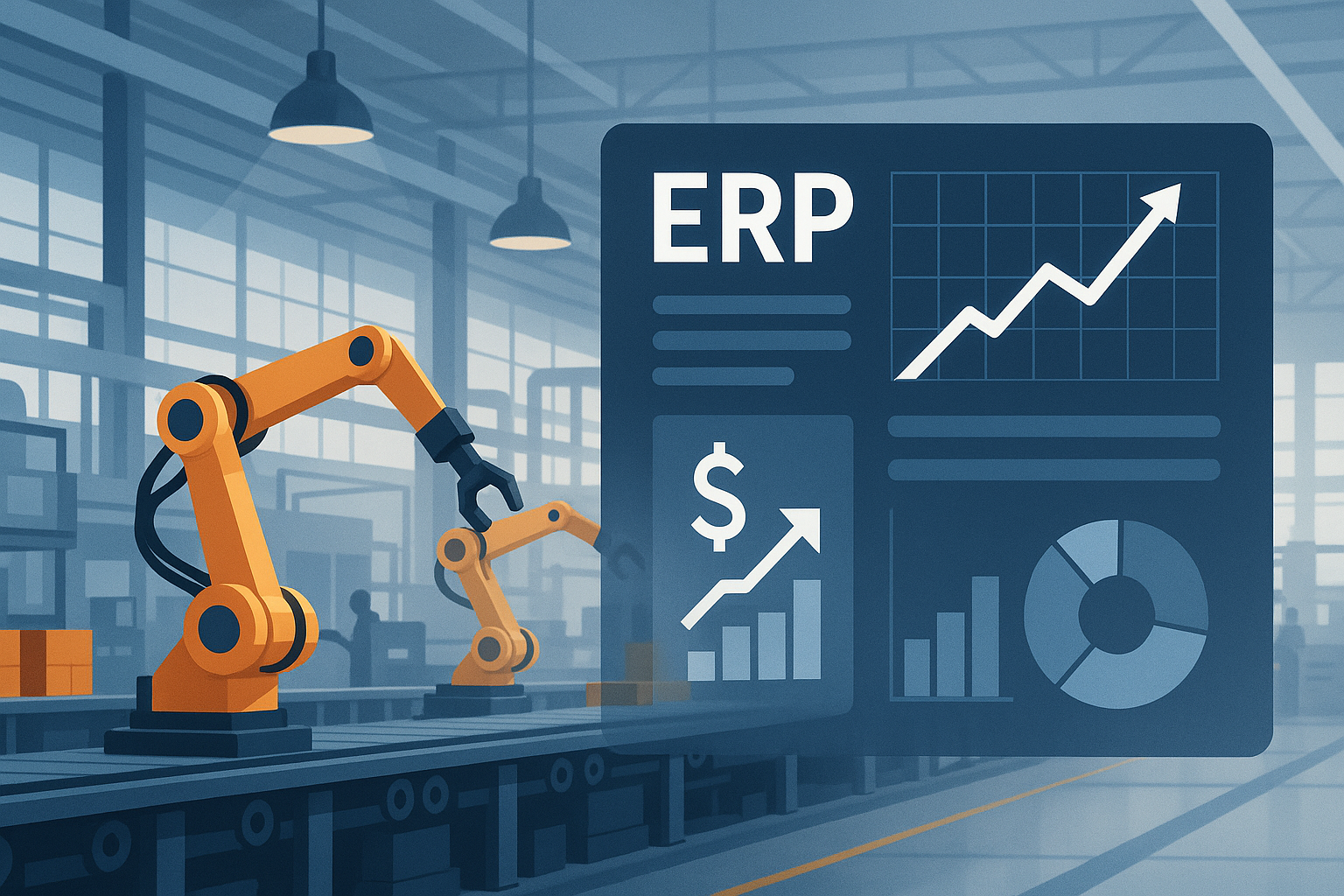Community Post
The Roi Of Implementing Erp In Manufacturing Companies
Legacy blog content imported from static page.
Manufacturing & ERP
The ROI of Implementing ERP in Manufacturing Companies

Manufacturing companies today face growing pressure to optimize resources, improve efficiency, and stay competitive. One of the most effective ways to achieve these goals is by implementing Enterprise Resource Planning (ERP) software. While the investment in ERP may seem significant, the return on investment (ROI) often outweighs the cost, offering measurable benefits across operations, productivity, and profitability.
1. Streamlined Operations and Reduced Costs
ERP software centralizes business functions—such as production, inventory, supply chain, and finance, into one integrated system. By eliminating redundant processes and reducing manual errors, manufacturers can cut down operational costs and improve efficiency. This cost saving is a direct contributor to ROI.
2. Improved Inventory Management
Poor inventory management leads to stockouts, excess storage costs, and wastage. An ERP system ensures real-time visibility into stock levels, helping manufacturers balance supply and demand. Accurate forecasting prevents overstocking and understocking, which ultimately saves money and boosts profitability.
3. Enhanced Production Planning
ERP enables better scheduling and resource allocation. By integrating demand forecasting with production planning, companies can reduce downtime, maximize machine utilization, and meet delivery deadlines. This improvement directly impacts ROI by minimizing delays and wasted resources.
4. Better Decision-Making with Data Insights
Manufacturing ERP software provides managers with real-time data and analytics. This transparency enables quick and informed decision-making, helping businesses respond faster to market demands. Informed decisions lead to better strategies and higher revenue growth.
5. Boosting Customer Satisfaction
With ERP, manufacturers can track orders, monitor deliveries, and ensure timely fulfillment. Satisfied customers are more likely to become repeat buyers, contributing to long-term profitability and ROI.
6. Scalability and Long-Term Value
An ERP system is designed to grow with the business. As manufacturers expand operations, the ERP adapts without requiring a complete system overhaul. This scalability ensures long-term value, further improving ROI over time.
Conclusion
The ROI of ERP in manufacturing companies goes beyond financial returns. It provides streamlined operations, better inventory control, data-driven decisions, and customer satisfaction—all of which strengthen a company's competitive edge. At ATW, we specialize in implementing tailored ERP solutions that maximize ROI for manufacturing businesses. With our expertise, you can transform your operations into a more efficient, cost-effective, and profitable system.
Ready to Transform Your Manufacturing Operations?
Discover how ATW can help you implement the right ERP solution for your manufacturing business.
Get Started Today
